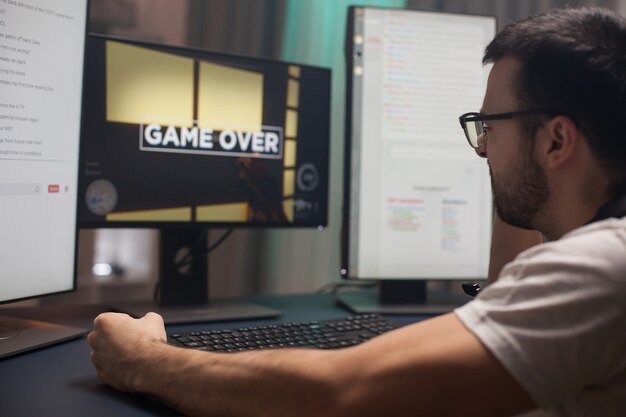
10 Free Tools to Start Learning Game Development (No Budget Needed)
The dream of creating your own video game is more achievable than ever. A vibrant ecosystem of free, professional-grade tools exists, waiting for you to dive in. This list gives you everything you need to start building.
1. Godot: The Rising Star Engine
Best for: Beginners & 2D/3D Indie Projects
Godot is a powerhouse open-source game engine that’s completely free, with no strings attached. Its node-and-scene architecture is intuitive to learn, making it a fantastic choice for beginners.
2. Unity: The Industry Giant
Best for: 3D Games & Aspiring Professionals
Unity is one of the most popular game engines in the world. Its free Personal plan is incredibly robust, giving you access to nearly all core engine features and a massive community.
3. Unreal Engine: The Graphics Powerhouse
Best for: High-End 3D & Visual Fidelity
Unreal Engine is renowned for its cutting-edge graphics. Its secret weapon for beginners? Blueprints, a visual scripting system that lets you create game logic without writing code.
4. GDevelop: Code-Free Creativity
Best for: Absolute Beginners & Non-Programmers
This open-source engine allows you to make games using event sheets—a system of visual rules like “If the player presses JUMP, then make them move upward.”
5. Blender: The 3D Universe in One Tool
Best for: 3D Modeling, Animation, and More
Blender is a complete 3D creation suite that lets you model, sculpt, rig, animate, and render. It’s an all-in-one tool for creating every 3D asset your game might need.
6. Krita: Digital Painting Perfected
Best for: 2D Art & Textures
Krita is a free digital painting application built by artists. It’s fantastic for drawing concept art, creating sprite sheets, or painting textures for 3D models.
7. Piskel: Pixel Art Made Easy
Best for: Creating Pixel Art & Animations
Piskel is a simple, web-based editor specifically for making pixel art and sprites. Its straightforward tools make it perfect for beginners.
8. BFXR: Instant Sound Effects
Best for: Retro & Arcade Sound Effects
Need a laser blast or explosion? BFXR generates classic 8-bit sound effects at the click of a button. No audio editing knowledge needed.
9. Audacity: The Audio Swiss Army Knife
Best for: Recording & Editing Audio
Audacity is essential for recording voice lines, cleaning up sounds, trimming audio files, and applying simple effects. A crucial tool for managing your game’s audio.
10. Freesound.org: Your Sound Effect Library
Best for: Finding Royalty-Free Sounds
You don’t have to make every sound from scratch. Freesound.org is a database of Creative Commons-licensed sounds. Always check the license for each sound.
Your Toolkit Awaits
The only thing standing between you and your first game is the decision to start. These tools demolish the financial barriers to game development. Pick one engine and one art tool, find a beginner tutorial, and start creating.
Which tool are you most excited to try? Let us know in the comments below!

Leave a Reply